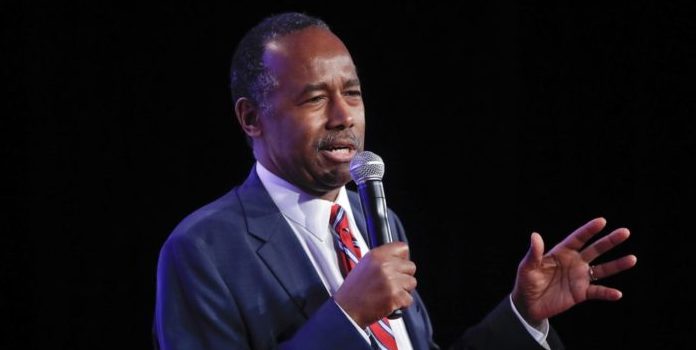(Headline USA) Black voters have been a steady foundation for Democrats for decades, but that support appeared to show cracks in the 2022 election.
Republican candidates were backed by 14% of Black voters, compared with 8% in the last midterm elections four years ago, according to AP VoteCast, an extensive national survey of the electorate.
In Georgia, Republican Gov. Brian Kemp more than doubled his support among Black voters to 12% in the 2022 election compared with 5% in the 2018 election, according to VoteCast. He defeated Democrat Stacey Abrams both times.
If that boost can be sustained, Democrats could face headwinds in 2024 in Georgia, Wisconsin, Michigan and Pennsylvania, where presidential and Senate races are typically decided by narrow margins and turning out Black voters is a big part of Democrats’ political strategy.
It’s too early to tell whether the 2022 survey data reflects the beginnings of a longer-term drift of Black voters toward the GOP or whether the modest Republican gains from an overwhelmingly Democratic group will hold during a presidential year. Former President Donald Trump, who has announced his third run for the presidency, received support from just 8% of Black voters in 2020, according to VoteCast.
The survey from this year’s midterms also found that Republican candidates in some key states improved their share of Latino voters, so any sustained growth in the share of Black voters would be critical.
A variety of factors might play into the findings, including voter turnout and candidate outreach. Yet some Black voters suggest they will be sticking with Republicans because they said the party’s priorities resonate with them more than those of Democrats.
Janet Piroleau, who lives in suburban Atlanta, left the Democratic Party in 2016, during Trump’s first run for office, and now votes Republican. That includes this year, when she voted for Kemp in his victory over Abrams.
Piroleau said she felt Democrats were pushing for more reliance on government programs. “That bothered me,” she said.
“For me, it was about being accountable and responsible and making your own decisions, and not depending on the government to bail you out,” Piroleau said.
April Chapman, who lives in metro Atlanta, is among the Black voters who favored Kemp and other Republican candidates.
Like Piroleau, Chapman cited issues such as immigration, border security and the economy as important in deciding to become a Republican a decade ago. But the 43-year-old mother said her main break with the party is over education.
She said she felt Democrats were trying to control what her children should be exposed to and how they should be educated.
“For our family, the government educational system was not the best option,” Chapman said.
Camilla Moore, chair of the Georgia Black Republican Council, said a large percentage of the voters Kemp won in the Black community “were actually Black Democrats.” Those voters made decisions based on Kemp’s performance in addressing issues they care about, Moore said.
The results in Georgia, she said, could be replicated elsewhere with the right candidates.
Abrams’ campaign office and Fair Fight Action, which was founded by Abrams, did not answer repeated phone or email messages.
The VoteCast findings underscore a dynamic that Black activists and community leaders have long sought to convey — that Black voters are not a monolith and that the Democratic Party should not take them for granted.
Nationally, Republicans worked during the midterms cycle to try to shift a share of Black voters to their side. The GOP conducted business roundtables, prayer gatherings, food drives and school choice events to hear the kinds of priorities in Black communities that might influence their voting, said Janiyah Thomas, a communications strategist and former Black media affairs manager at the Republican National Committee.
Thomas, who recently voted Republican, added that her disagreement with the Black Lives Matter movement encouraged her switch.
Adapted from reporting by the Associated Press

